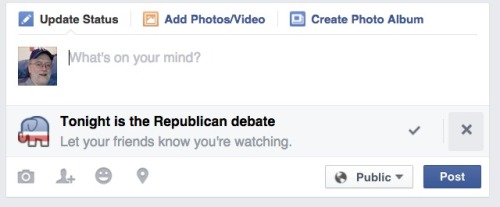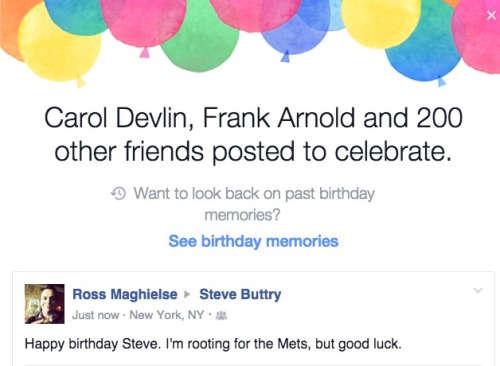Early in my years of understanding social media, I said it was a lot like other social interactions: face to face individually and in groups, on the phone and in email exchanges. I was right in many ways, but I hadn’t yet noticed how different social media could be at the extremes of interaction.
I’ve been fascinated the past couple years with how kind strangers have been on social media, and how rude they have been.
I don’t know how much this represents evolution of social media (or perhaps tweaking of algorithms that govern the social-media experience) and how much it represents my eventually noticing what was always going on. It certainly represents only my experience, rather than any extended research. And I’ll admit that my transparency about personal matters probably draws more support than many people when life turns difficult. And my willingness to engage with (OK, sometimes to provoke) the rude people butting in on conversations probably inflames their rudeness beyond the usual experience.
But I’m fascinated with the way that social media brings these responses, so I want to mention them both. I will note only briefly, with appreciation, the many people whose outpouring of support has uplifted and touched me the past couple of years. When I lost my job last year, the encouragement and support on social media (and tips and introductions to people who actually offered me jobs) were overwhelming.
But that support paled in comparison to the virtual hugs I have received since my lymphoma diagnosis last December. During my treatment, which has included some setbacks I won’t repeat here, the digital embrace on Facebook, Twitter and CaringBridge was tremendous. But it went beyond words of encouragement and promises of prayers. People I never or barely met in person, as well as friends of Facebook friends whom I truly didn’t know, even digitally, sent me a journalism game, a handmade prayer shawl, a personal note about baseball, headgear when my hair disappeared, and, I’m sure, other gifts I’m not recalling at the moment. A person I’ve met only digitally shaved his head in support of me and another person undergoing chemotherapy.
These weren’t just journalism friends who knew me through my blog and meetings at conferences (though the support from my journalism friends was amazing). But non-journalists joined my support network after seeing my blog posts or CaringBridge posts in their friends’ comments and likes.
I don’t want to go on too long about the wonderful extreme of social media, though I’m writing the first draft of this post on Thanksgiving Day, so it feels appropriate. To go on at length about the support could go beyond expressing gratitude to boasting about how beloved I am, or inviting more support. I mostly mention the positive extreme to provide the necessary contrast to the primary point of this post: Facebook trolls.
Consider other social situations: Political arguments are common, whether at an office holiday party, a meeting of friends in a bar or restaurant or a family gathering. But I can’t imagine one of those situations, even in settings that involve lots of drinking, where a stranger would decide to join a conversation that’s already under way and take it over, insulting the others in the group and even calling names, without ever making sense.
That happens to me multiple times in a week on Facebook, not just with politics, but politics and cultural issues are the most common settings in my experience. Who, in overhearing a political discussion in a restaurant or at a party where you’re mostly or entirely an outsider, would butt in, however certain you were in your position, belittling people to their faces and calling names? I’m not saying it’s never happened, but I can’t remember it. We’ve all been at parties of people we didn’t really know, perhaps a spouse’s office party or a business conference where we don’t have many friends. We hear people making absurd statements, but we don’t feel the need to loudly set them straight.
Not on Facebook. Again and again, usually in political discussions, people I’ve never heard of jump in and go off on rants like I almost never see in personal encounters. I’ll illustrate with two discussion threads from Facebook this week (and they could come from nearly any week).
Before I show these discussions, I should acknowledge that these situations don’t necessarily bring out the best in me. When strangers interrupt rudely, I am not as gentle in pointing out their errors as I would be with friends. As I might do with a stranger interrupting a dinner conversation in a restaurant, I sometimes suggest they return to their own tables. I believe I am patient in most of life’s circumstances, but I sometimes hastily return rudeness with rudeness. Which makes me rude, I guess. If the point it to bring people down to their level, it sometime works. But sometimes I just like to poke them because their responses are so predictable.
I started one discussion Tuesday, sharing a link to a Washington Post story that labored too hard over whether Donald Trump’s many completely false statements are actually lies:

(more…)
Read Full Post »















